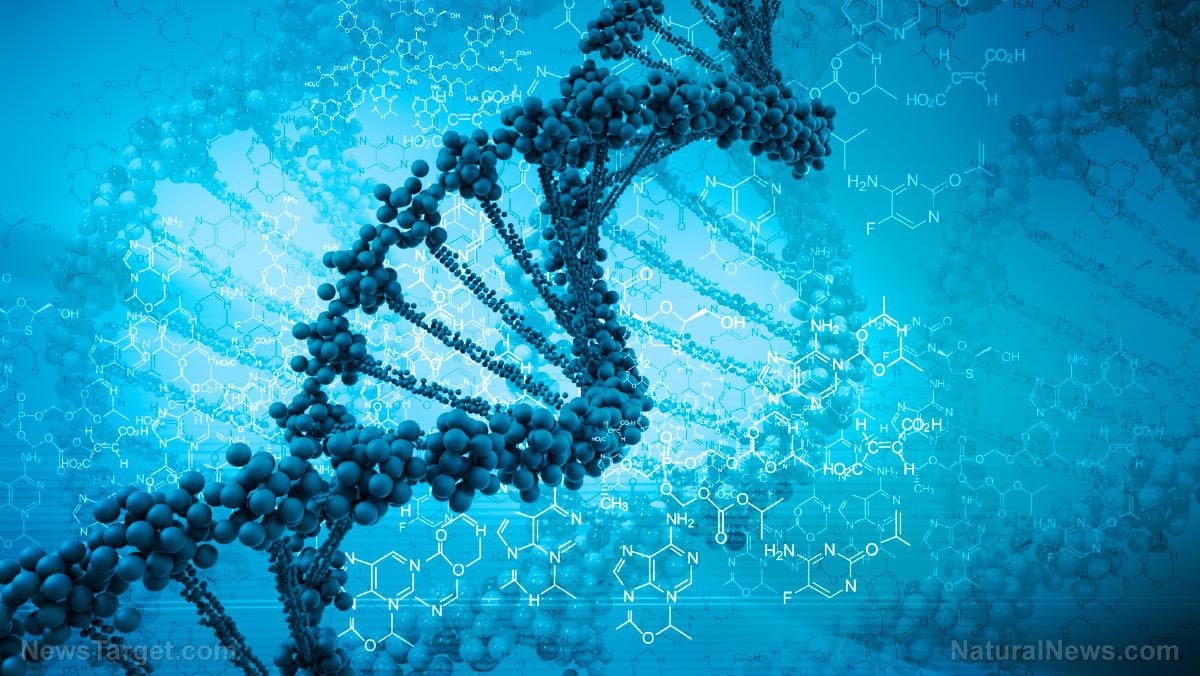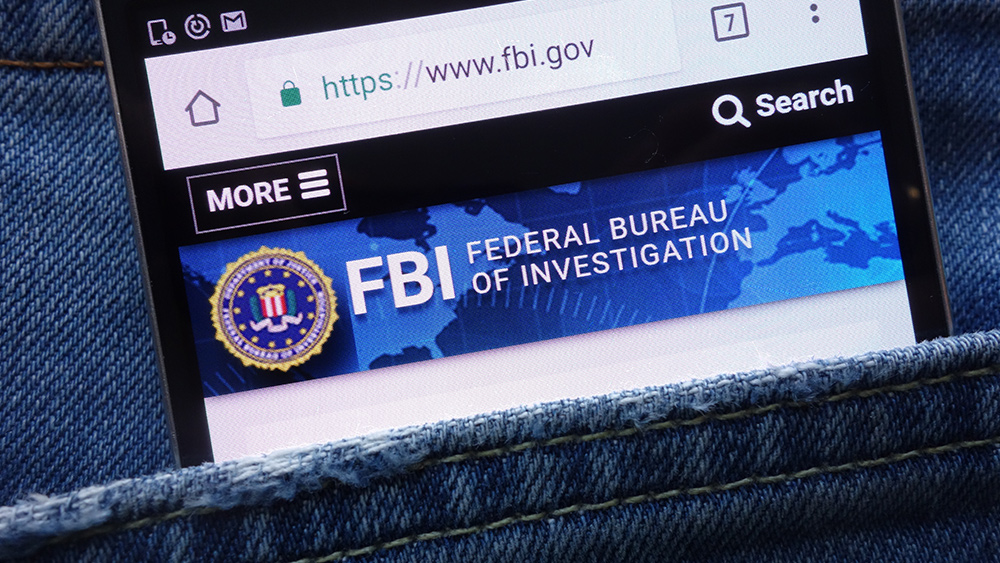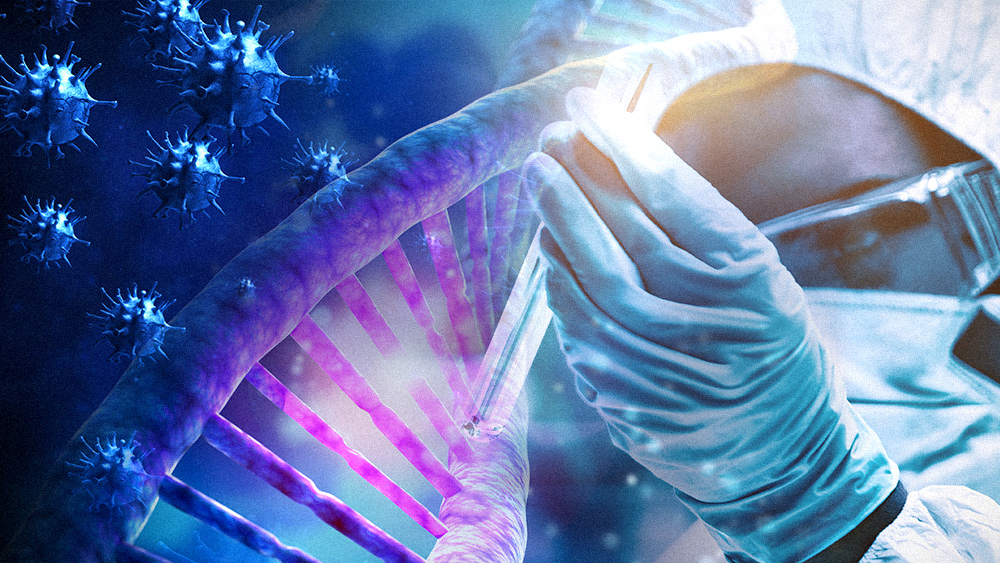Biometric data and surveillance: DNA being eyed as the “ultimate global ID”
12/06/2023 / By Zoey Sky

It is dangerous for human DNA to fall into the wrong hands because it reveals all your genetic predispositions. And DNA cannot be altered, which ensures “lifelong immutability.”
Now, there are DNA sequencing devices that can quickly generate DNA profiles (DNA IDs) anywhere using mobile devices and fully automated processes, and those in power are eyeing DNA as a potential global ID.
Your DNA is more precious than gold for technocrats because it is the irreducible structure of all life on the planet.
DNA can be abused and used against you
Always be skeptical regardless of the hype for DNA as a global ID. Be wary of allegedly beneficial outcomes of a global DNA ID.
Biometric identification solutions have become firmly established in your daily life, whether at security checks at airports or through facial recognition on smartphones. However, the next generation is already waiting.
New DNA-based processes can allegedly ensure precise identification of individuals and raise data protection to a completely new level.
For the longest time, DNA-based methods were reserved for forensic work, such as the definitive identification of disaster victims or the determination of degrees of relationship.
But as technology advances, the latest generation of solutions for confirming identity will be hyped as suitable for use in public service. This is a development with major advantages because for citizens, proof of your own identity is the key to state benefits, education and mobility – at least in theory.
But in reality, many people around the world still do not have a legal identity that can be verified by documents like a birth certificate or passport. Many will claim that this is where the potential of unalterable and unique DNA comes into play, which can sometimes unambiguously identify people if there is doubt.

As DNA is hyped as a global ID, there will be those who claim that the new generation of DNA-based methods offers several far-reaching advances in this area.
Despite the novelty of the idea, DNA-based personal identification is not a new invention. But while forensics practitioners have used this method since the 1980s, highly automated processes have only been available within recent years.
Using the latest technology, certified “Rapid DNA Technology” solutions can generate DNA profiles (DNA IDs) anywhere and within a very short time using only mobile devices and fully automated processes. These processes do not require any special technical or scientific knowledge and allegedly guarantee lossless data generation.
If global DNA IDs are rolled out, they will be marketed as offering many benefits compared to conventional biometric identification methods such as your fingerprints or iris recognition. And since the stored information is enclosed and protected directly in the nucleus of the human cell, the DNA-based solution ensures lifelong immutability and protects against tampering. (Related: Destination, biometrics and more: New cars can track and collect driver data, warn experts.)
If you are concerned about data protection, you may be told that a DNA ID offers an unrivaled level of anonymity. The information stored in forensic or civil databases is purely numerical and does not reveal any information about your ethnic origin, appearance or health status. But if people have access to the right tools, there is a chance that your data can be used against you.
Once created, DNA IDs can be registered and stored in government-controlled databases. The small data size of a DNA ID, measuring only 200 bits, ensures easy storage on conventional chips for smart biometric identification documents such as passports.
DNA identification being hyped as ID technology of the future
Despite these proposed benefits, the general public continues to associate the collection of DNA samples mainly with their use in the field of criminal law.
The resulting skepticism toward DNA-based methods is understandable, but a new classification and assessment is necessary and must take place with education and transparency.
Those who push DNA as a global ID argue that DNA identification is more anonymous and precise than other biometric methods, which can result in a “completely new level of data protection.”
In the past, there were similar reservations about fingerprint matching or iris scans, but public opinion has changed through the years. While some remain skeptical, others trust biometric procedures to unlock their smartphones and feel secure with them.
Those in power tell the public that the same will happen for DNA IDs, especially if they insist on hyping its alleged benefits and the high level of security offered by the technology.
But despite claims that DNA IDs are secure and convenient, wary citizens must keep in mind that even what appears to be a secure way of storing data and maintaining user anonymity can be abused by an individual or a group with the right tools.
Will you risk your safety and privacy for convenience?
Visit PrivacyWatch.news to read more articles about the dangers of biometric data abuse.
Watch the video below to learn if hospitals are stealing the DNA of babies.
This video is from the Worldview Report channel on Brighteon.com.
More related stories:
Millions of UK students are using BIOMETRICS for school-related activities without parental consent.
Sources include:
Submit a correction >>
Tagged Under:
big government, computing, conspiracy, cyber war, Dangerous, data collection, deception, DNA, enslaved, future science, future tech, genetic lunacy, Glitch, globalists, information technology, inventions, location data, national security, privacy watch, surveillance, technocrats, Tyranny
This article may contain statements that reflect the opinion of the author





















